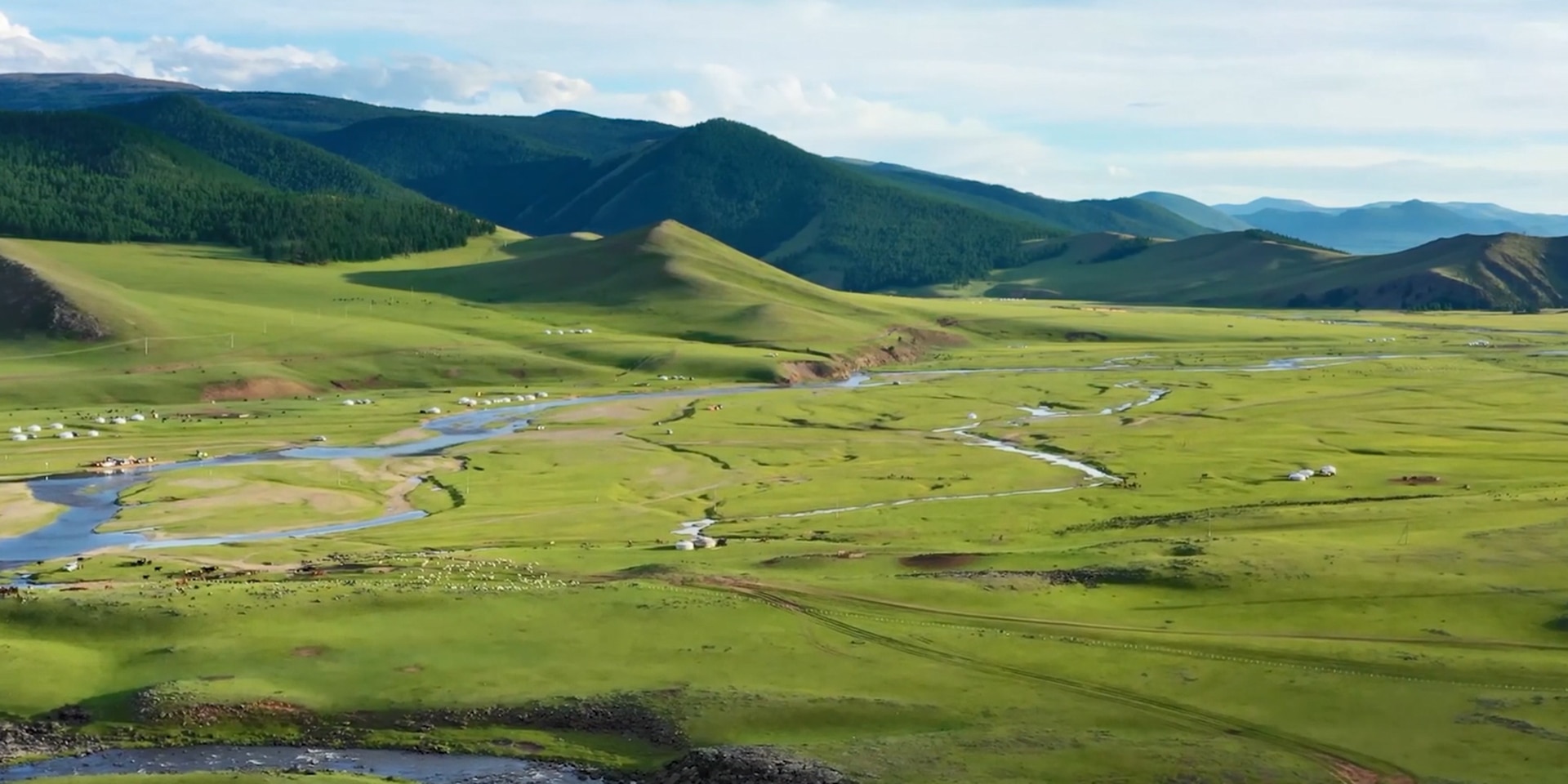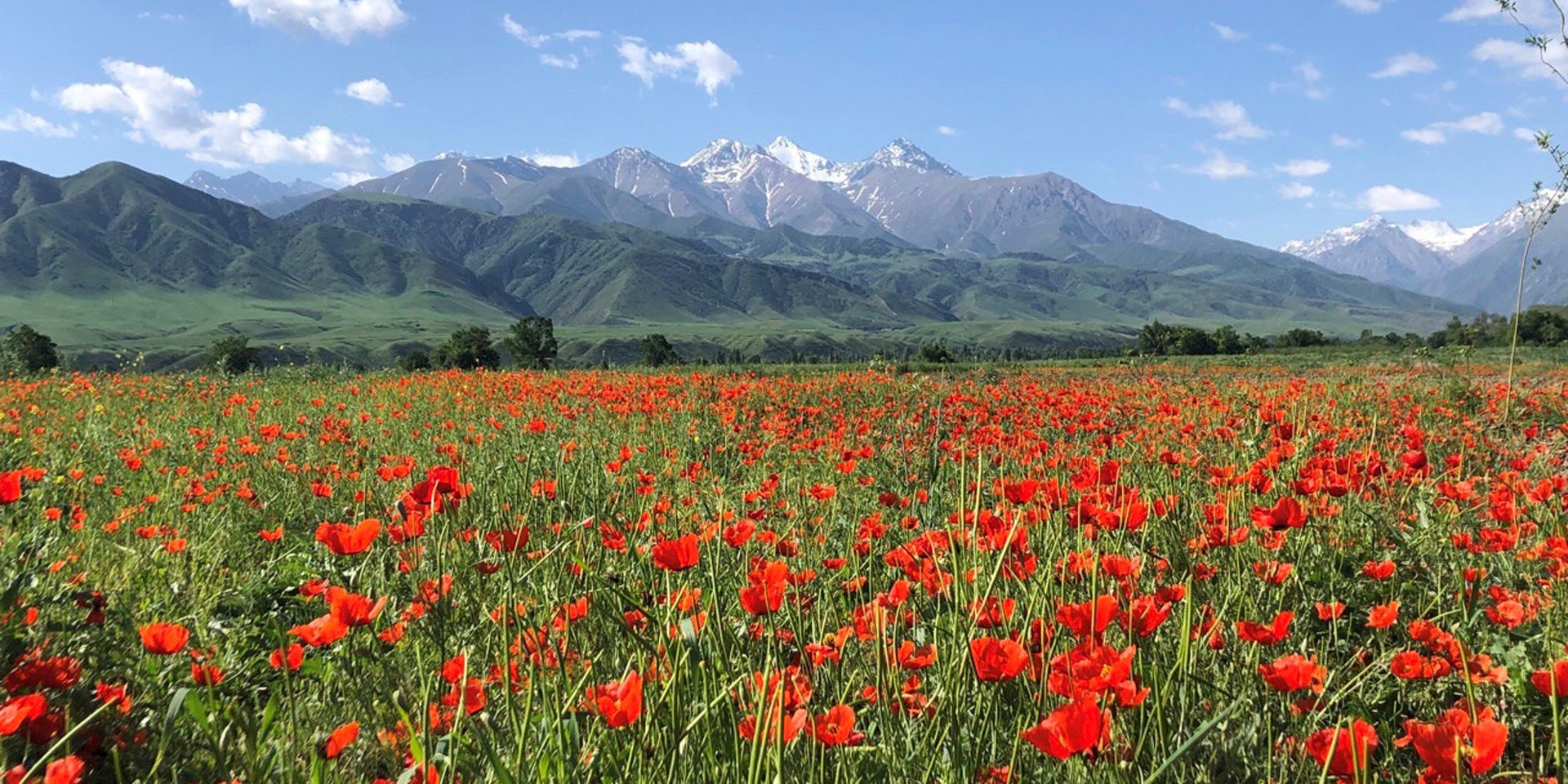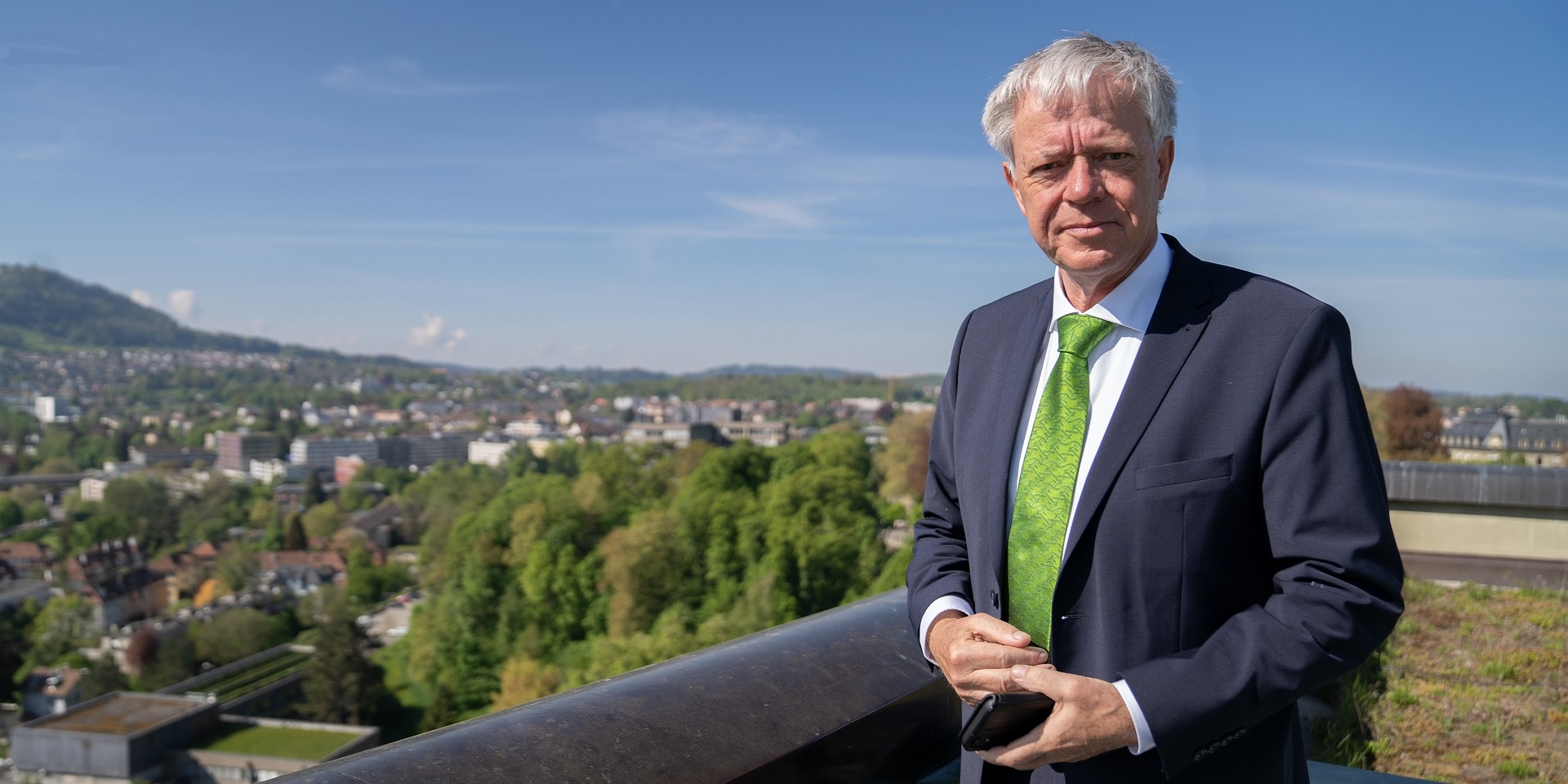Democracy and decentralisation – when Mongolia draws inspiration from Switzerland
Landlocked, mountainous and democratic: a description of Switzerland? Yes, and of Mongolia too. But those are not the only links connecting these two countries. From 14 to 22 August, a Mongolian government delegation paid an official visit to Switzerland as part of the cooperation between the two countries. How does Zolzaya Lkhagvasuren, a Mongolian citizen working as a good governance expert at the SDC, view this?
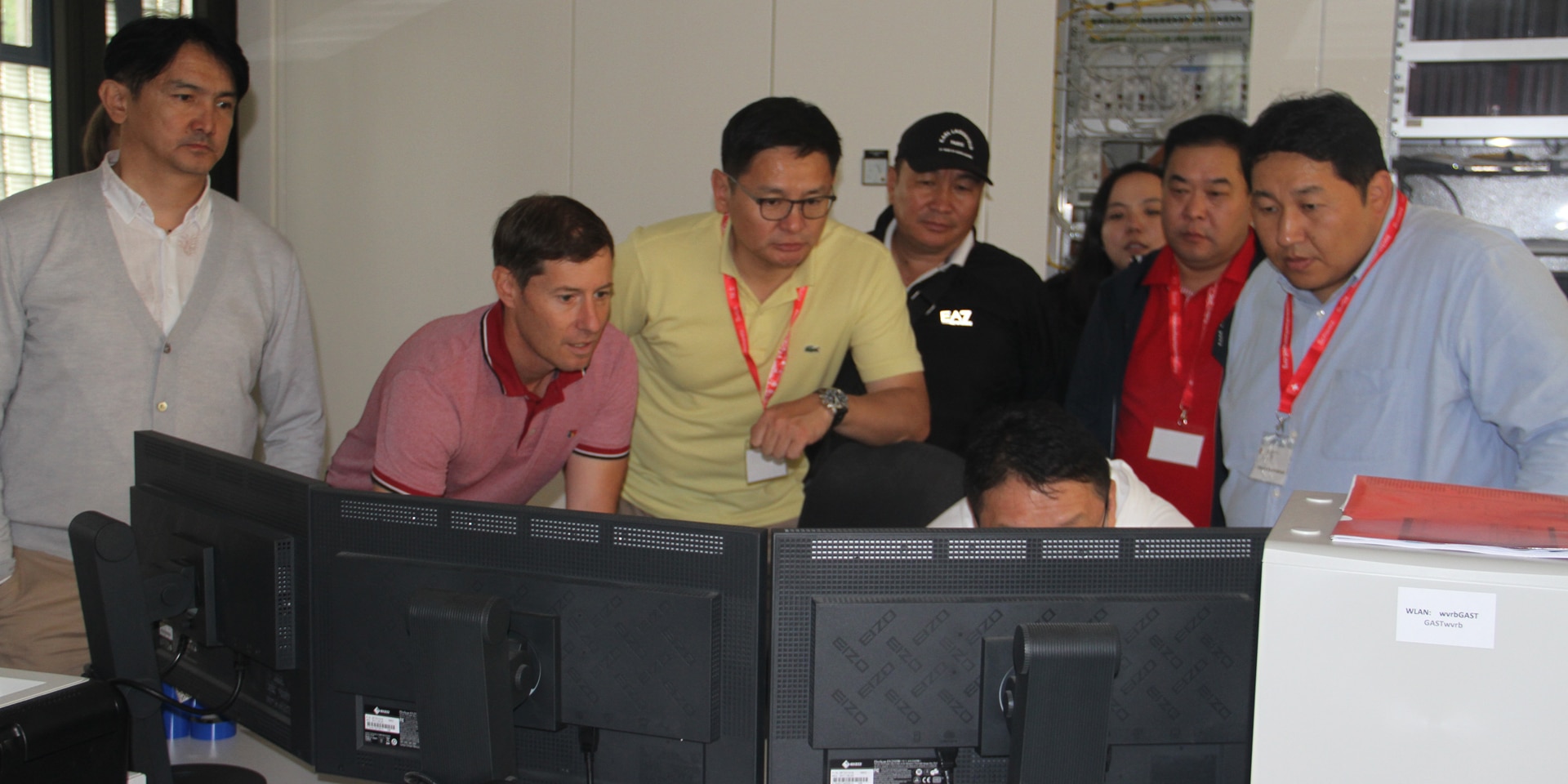
The visit of the Mongolian delegation, here exchanging views on the regional management of the drinking water system, focused on concrete examples © SDC Mongolia
Did you know that Switzerland was Mongolia's first non-socialist economic partner? There is a long tradition of cooperation between the two countries.
Since Mongolia's constitution laid the foundations for democracy in 1992, the country has made significant political, social and economic progress, and established democratic institutions. To bolster its work towards further democratisation and decentralisation, the Mongolian government expressed an interest in finding out more about how the Swiss federal system works. This interest afforded Switzerland the opportunity to share its experience with a delegation from the Mongolian government during its official visit. The delegation was headed by Luvsandorj Ulziisaikhan, the Secretary General of Mongolia's parliament, the State Great Hural. To reflect on these exchanges, we spoke with Zolzaya Lkhagvasuren, whose two-fold insider perspective as an SDC good governance expert and Mongolian citizen bridges these two realities.
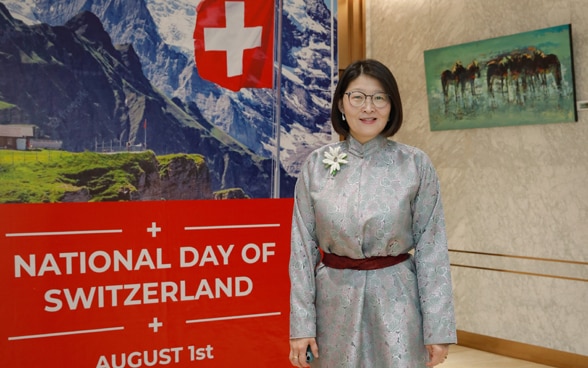
Ms Lkhagvasuren, you accompanied the delegation composed of high-level representatives of the Mongolian government during its visit to Switzerland. Why did you choose to organise a field visit to the heart of Swiss democracy?
First of all, you should know that this visit did not take place in a vacuum. What started in 2002 as Swiss humanitarian aid to tackle the brutal aftermath of winters in Mongolia has developed into a series of partnerships focused on the challenges of democratisation and decentralisation in the country. For Mongolia, Switzerland is exemplary in these areas. Proof of this are the references to the Swiss Confederation in some of the first records documenting the Mongolian government's founding, dating back some 100 years. But beyond this, the official visit was about sharing practical experiences in local-level public policy-making.
What were the key goals set for the eight-day visit?
In the 1990s, the Mongolian government launched a series of reforms to foster the democratisation and decentralisation of the country. The legal and political frameworks are in place, and visiting the national and international institutions in Switzerland is an excellent way to gain experience and practical insight into how to apply these principles. The visit focused in particular on the protection of human rights and the promotion of gender equality.
What would you say were the highlights of this trip?
Meeting Ambassador Thomas Gass, SDC Deputy Director, served as an opportunity to take stock of the gains of 20 years of development cooperation and to reflect on the future of the partnerships bringing the two countries together.
Just as valuable was our visit to the Inter-Parliamentary Union in Geneva. It entailed the Mongolian parliamentary services signing a memorandum of understanding on promoting the integration of respect for human rights into the country's legislative and parliamentary processes.
Personally, I also think that the visit to Wasserverbund Region Bern perfectly conveyed the essence of this field visit: we were able to see first-hand how the authorities organise themselves at regional level to ensure residents' access to water and plan how to use it sustainably to meet their needs.
The SDC has been contributing to Mongolia's development for almost 20 years. Could you give us some examples of this cooperation?
This fruitful cooperation has always been geared towards putting into place practical solutions. In particular, it focuses on the three priorities of agriculture and food security, education and good governance.
In recent years, the Mongolian government has successfully implemented reforms to improve public services. In line with this work, which focuses heavily on the population's needs, the SDC is promoting digitalisation projects in Mongolia. Digitalisation means both the risk of a digital divide and affording the public easier access to information. The SDC worked with the Mongolian government to set up local offices offering various digital services to citizens, such as collecting biometric data and issuing birth certificates.
One of the other key projects of this bilateral cooperation is the Mongolian Potato Project. Potatoes are a staple food in Mongolia, especially in disadvantaged communities. But up to 2004, potatoes were mainly imported from China; the climate in Mongolia, with its cold and dry winters, is not very conducive to potato-growing. To eliminate dependence of potato imports, the SDC, working with local farmers, has conducted studies to determine which potato varieties are likely to grow well in Mongolian soils. A similar project is currently under way to make the production of other types of vegetables self-sufficient.
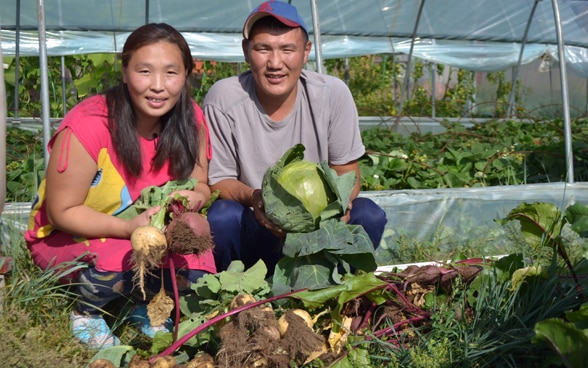
How did Switzerland support in the past years the Mongolian efforts on governance?
Although democratic institutions and processes exist in Mongolia, their implementation still needs to be optimised and applied throughout the country. This is precisely where Switzerland, with its experience, has a role to play. For example, a delegation from the Mongolian government attended a training course at the Centre for Democracy in Aarau. On this occasion, they were given practical information about direct democracy and participatory processes.
It is also essential to work on the ground, to educate people about democratic principles. If the government has responsibilities towards its citizens, citizens also have a duty to understand and keep the democracy of their country alive. This task is not limited to the election of representatives. This is why, for example, the SDC has supported the establishment in 2021 of the Parliamentary Education program, aimed at raising awareness among young people of the importance of a healthy democracy. How does parliament work? How do you draft a law? These are questions addressed in this program, which will be rolled out nationwide in the future. Anchoring and normalising these principles of democratic governance and respect for human rights among the population is a key task.
You yourself are a Mongolian citizen. How do you perceive the SDC's work in your country?
I have been working for the SDC for 10 years now. My opinion, as a Mongolian citizen, is that Swiss development aid is courageous and pragmatic. It tackles challenges that others find too daunting. One example I have in mind here is the Public Investment in Energy Efficiency project, a major effort to improve the energy efficiency of public buildings, particularly that of schools. Given the harsh Mongolian winters, the aim of improving these buildings' insulation was above all to safeguard the health of the children who attend them, while at the same time providing significant energy and monetary savings for the families. This money can then be transparently invested in other sustainable projects.
This is why I think that the local communities view Swiss cooperation aid positively; it often contributes to solutions for concrete problems of everyday life.
Why are democratisation and decentralisation issues in Mongolia?
The numbers speak for themselves. The surface area of Mongolia is almost 38 times greater than that of Switzerland. But Mongolia is also the world's most sparsely populated country, with some 3.3 million inhabitants very unevenly distributed across its territory. Rural-urban migration has seen much of the country's population flowing to the capital, Ulaanbaatar, which alone now accounts for over half of the population. Ensuring access to national services and resources for all is both a challenge for the government and one of its duties.
The SDC opened the Swiss cooperation office in Mongolia in 2004. Since 2012, at the request of the Mongolian government, it has been working jointly on democratisation and decentralisation issues. In 2024, this bilateral development cooperation will come to an end, making way for other forms of cooperation. Phasing out this cooperation will entail securing the achievements of the 20 years of partnership and making them sustainable.

